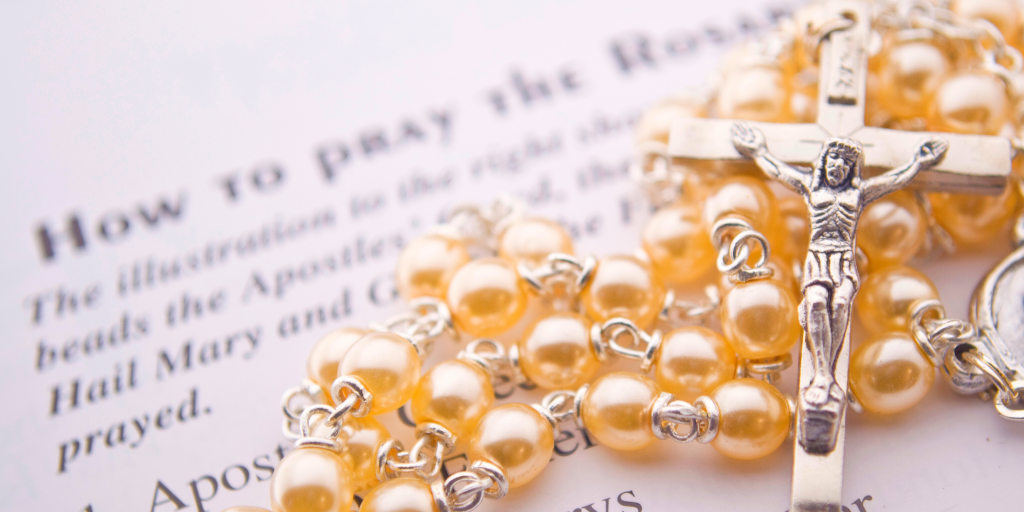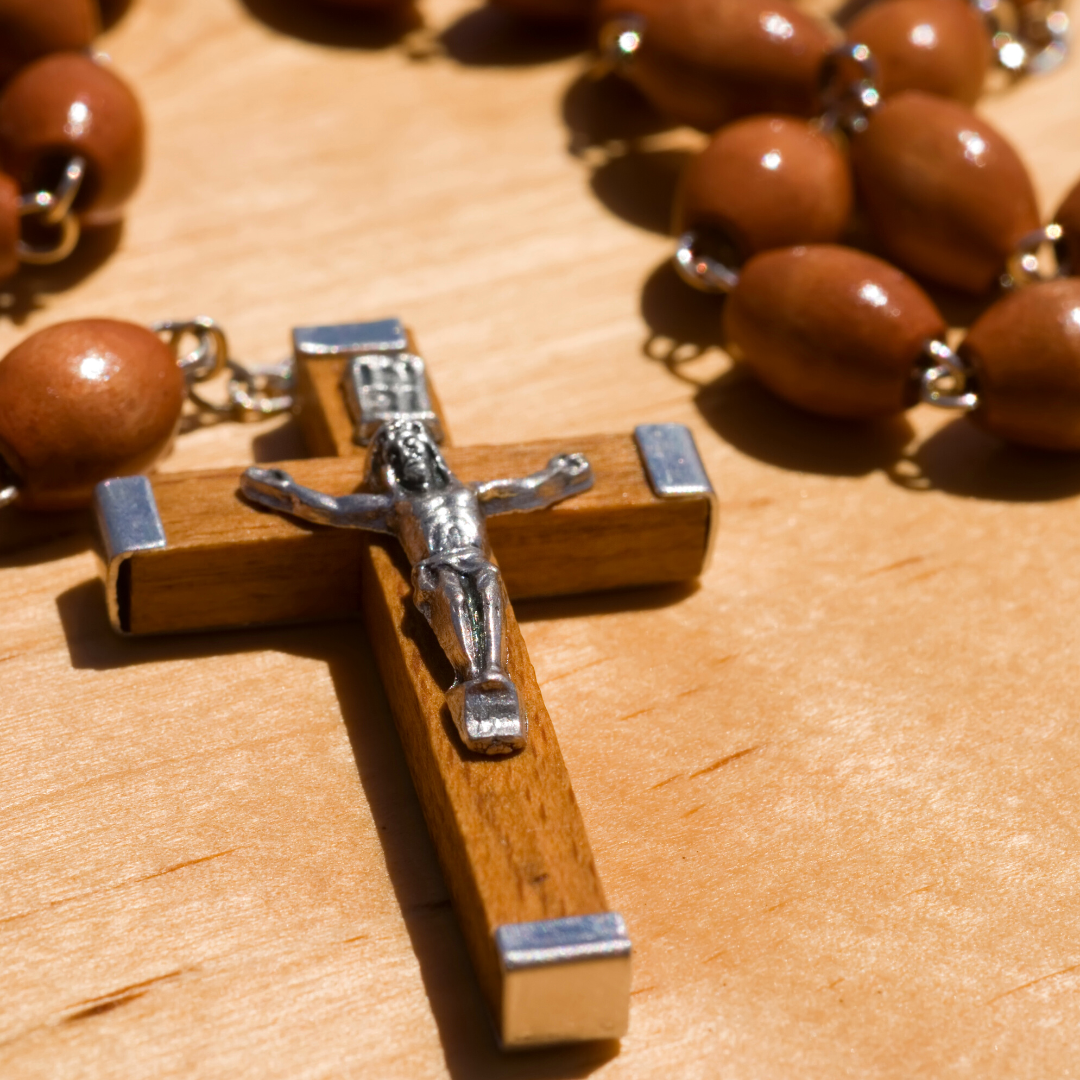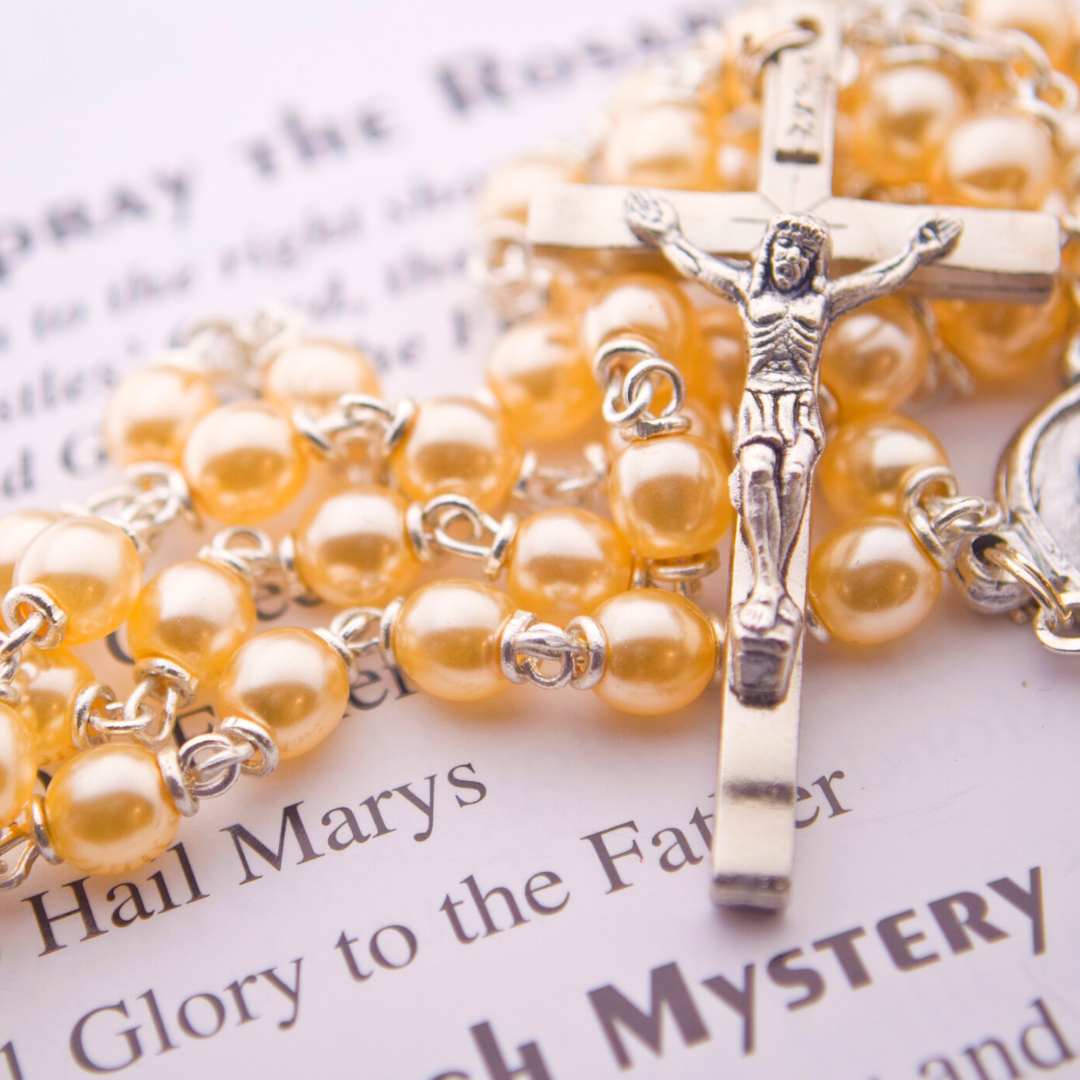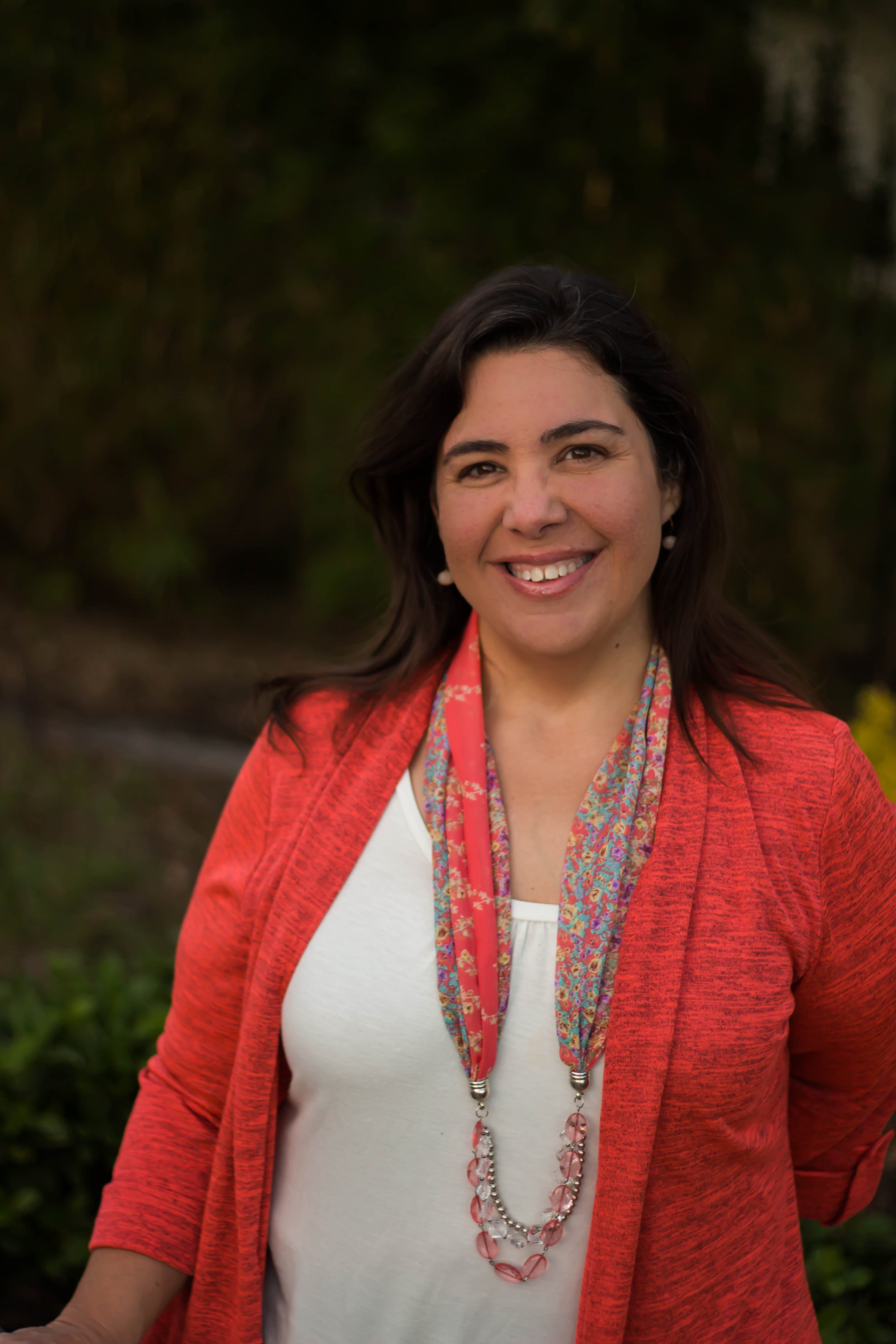
Ivonne J. Hernandez invites us to slow down and reflect on the inexhaustible treasure contained within the introductory prayers of the Rosary.
Prayer is man's greatest virtue. All virtues are comprised in it, for all the virtues are a preparation for it and a part of it. Faith believes, hope prays, and charity begs in order to give to others; humility of heart forms the prayer, confidence speaks it, and perseverance triumphs over God Himself. Eucharistic prayer has an additional merit: it goes straight to the Heart of God like a flaming dart; it makes Jesus work, act, and relive in His Sacrament; it releases His power. The adorer does still more: he prays through Jesus Christ and shares our Lord's role as Intercessor with the Father and Divine Advocate for His redeemed brethren. (St. Peter Julian Eymard)
The Rosary begins with the Sign of the Cross, The Apostle's Creed, an Our Father on the first large bead, and three Hail Marys on the first three small beads. These three Hail Marys are offered for an increase in the three theological virtues: faith, hope, and charity. Let us ask Our Lady to clothe us with her virtues while contemplating Jesus in the Most Blessed Sacrament.

The first virtue we pray for is faith. St. Peter Julian tells us that Jesus in the Eucharist "is the object and the means of our faith." We can see Him, but He is veiled. We see bread and wine, but we KNOW it is Our Lord. We say, "I do believe, help my unbelief!" (Mark 9:24). With this assent of the will, we open ourselves to receive the gift of faith to allow it to grow in our souls. The more time we spend in His Presence, the more our love for Him will be nurtured and grow. And the more our love grows, the more our faith will grow in turn.
The clearness of one's insight into the Eucharist is proportioned to one's greater or lesser love and purity of life. (St. Peter Julian Eymard)
We hope for Heaven, and while we wait, we have Heaven on Earth, our Eucharistic Lord. The Baltimore Catechism defines Heaven as "the state of everlasting life in which we see God face to face, are made like unto Him in glory, and enjoy eternal happiness." In the Eucharist, we see Jesus. Though veiled to our senses, our soul can see Him, converse with Him, and BE with Him. "Be still and know that I am God!" (Psalm 46:11) So when we want to pray for an increase in the virtue of hope, let us look at Our Lord in the Eucharist, and let us rest in Him. We rest in Him, assured that His promises are true and that He is with us until the end of time.
St. Peter Julian tells us that contemplation is the source of charity and love. When we think about how to contemplate, we only need to look to our model, Our Blessed Lady, who possessed all the virtues to their maximum expression.
And Mary kept all these things, reflecting on them in her heart. (Luke 2:19)
Mary was in the presence of Jesus, and she pondered; she contemplated. She opened herself up to be a vessel of God's grace to the world. She still does. When we pray a Hail Mary asking for an increase in the virtue of charity, we just need to ask our Mother to teach us how to contemplate the virtues of her Son in the Eucharist. When we connect to that source of charity and love, we allow ourselves to become a conduit, a channel of grace. Charity and love will flow from His heart to ours and from ours to our neighbor. In contemplating Jesus in the Blessed Sacrament, we love God for himself and our neighbor as ourselves.
"Prayer is man's greatest virtue" (St. Peter Julian Eymard). When we pray through Jesus in the Eucharist for an increase in the three theological virtues, we are, in reality, taking part in His prayer to the Father, with Him, and in Him. We do not need to worry about whether our prayer is enough or if we are doing it right. We don't even have to say anything! We just need to raise our hearts to Our Lord in the Eucharist, and He will hide us within His wounds. The Father will only see His beloved Son.
"If you then, who are wicked, know how to give good gifts to your children, how much more will your heavenly Father give good things to those who ask him" (Mattew 7:11). Let us then ask our Blessed Mother to help us to pray with the confidence of a child, and to be with us as we ask our heavenly Father, through Jesus in the Eucharist, for an increase in faith, hope, and charity.

Copyright 2022 Ivonne J. Hernandez
Images: Canva
This excerpt from the book, The Rosary: Eucharistic Meditations with St. Peter Julian Eymard, Apostle of the Eucharist by Ivonne J. Hernandez - ELISHEBA HOUSE is printed with permission.
About the Author

Ivonne J. Hernandez
Ivonne J. Hernandez is a Catholic wife, mother, writer, and speaker. She pursued a career in Computer Engineering before becoming a stay-at-home homeschooling mom to her three boys. She is a Lay Associate of the Blessed Sacrament, president of Elisheba House (non-profit Catholic media apostolate), and author of The Rosary: Eucharistic Meditations. For more information visit ElishebaHouse.com. Follow Ivonne on Facebook and Instagram.


.png?width=1806&height=731&name=CatholicMom_hcfm_logo1_pos_871c_2728c%20(002).png)
Comments